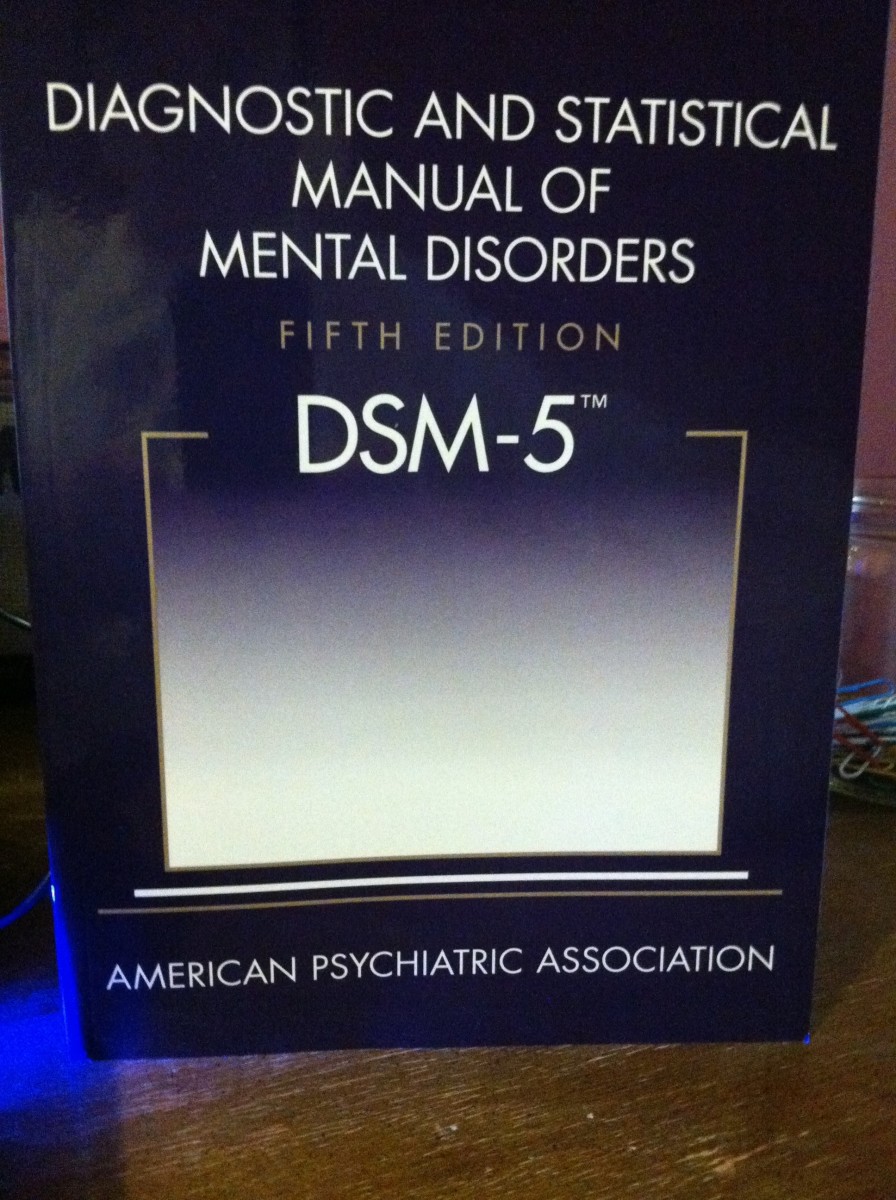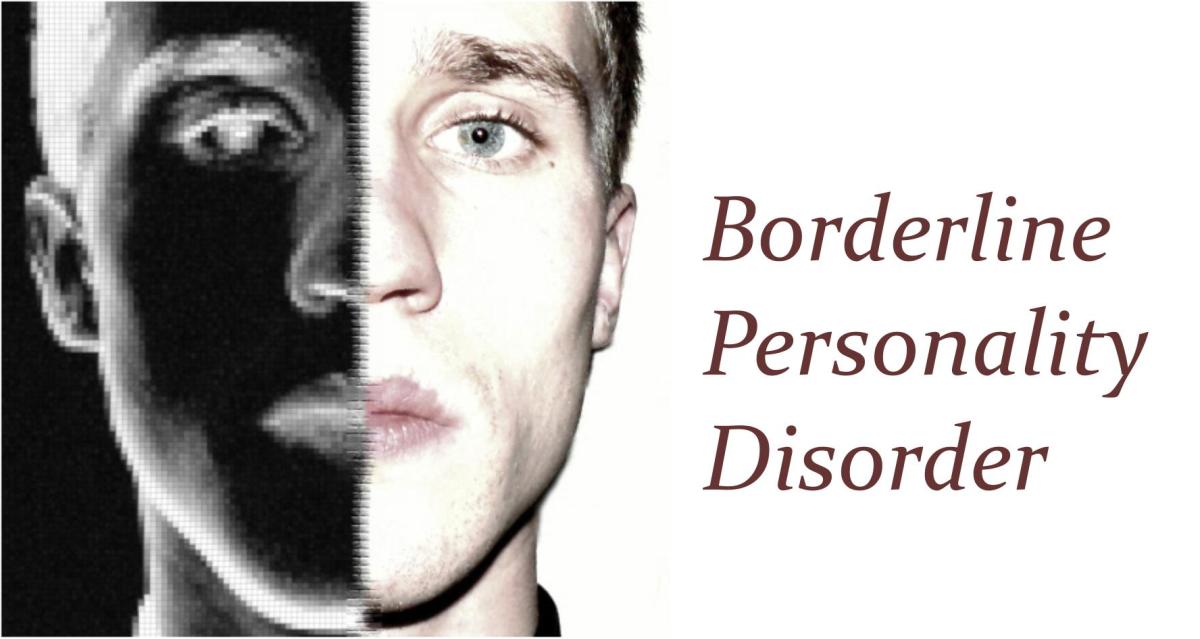- HubPages»
- Health»
- Mental Health»
- Mental Health Self-Help
The Disordered
Hello, how is your attitude? Your emotions? Your thoughts? How about your behavior? Good, I hope. It may be difficult to say if you have BPD or Borderline Personality Disorder, you may act the following ways:
- Odd or eccentric
- Dramatic or erratic
- Anxious or inhibited.
Your inner patterns when acted out will interfere with your ability to function and to live a normal life.
BPD is first discovered in late adolescence (ages 17 - 19) or early adulthood. Symptoms continue over time and leads to distress or impairment. Signs that a person has this disorder can show in early childhood. This has been discovered from interviews given by parents of some one with BPD. People with Borderline disorder are extremely impulsive and erratic. There is often extreme moods and behavior. These behaviors are often unacceptable to society. Erratic behavior can be very off putting.
In Borderline disorder, each of the moods you may experience throughout the day is either good or bad. People will see you as more stable when you have bipolar because you will display One mood 'at the time' for a longer period of time. For instance, you are depressed all day. The next day, you go about daily tasks normally. Other days, you are on high alert but you need sleep but your sleep patterns are abnormal. With borderline disorder, they will notice a good mood centered on one attitude one moment and a bad mood centered on the same attitude the next. In essence, they will see an immediate Jekyll and Hyde personality.
In the normal course of the day, your attitude will be, 'I really love you because you are important to me' (a good attitude toward your loved one). The next instance, 'I really hate you because you disappoint me so much that I don't need you'. Another attitude about the same relationship. However, you fear being abandoned by that same person you loved and hated within the matter of a few minutes or hours. These unstable moods and attitudes in both disorders can last for more than two weeks at the time. This is not normal.
- Three Easy Ways to Differentiate Bipolar and Borderline Disorders | Psychology Today
Bipolar or Borderline? A widely-used diagnostic is getting it wrong. By Randi Kreger... - Neuro-Transmitter Imbalance | The Wellness Pros
Defined as: Chemicals that transmit nervous system messages: “neuro-transmitters” between the brain and organs. Serotonin, dopamine, epinephrine, - The Dana Foundation
Information on brain receptors - http://www.sciencedaily.com/articles/a/amygdala.htm
Information on the brain and its functions.
Persons with borderline disorder notice their differences in behavior. They are still able to live in the real world. In other words a sufferer can have trust issues about being perceived as different, but not go overboard with thinking and believing the whole world is against him. He has no overly dramatic perceptions. They aren't delusional or psychotic. Hence the term Borderline. The person with this disorder stops short of going over the edge
Persons with this disorder have a narrow view of the world. This inflexibility makes it difficult to deal with them. For instance, when you give this person their diagnoses they have a hard time believing you. The trust of others is not exactly there. This makes it difficult to treat this person. The therapist or mental health professional and the patient must be able to cooperate together if a patient is to be cured.
Persons with bipolar disorder can have moods that go from extremely high (manic) to low (depressive). Hence the name bipolar.
Chemicals and glands
The brain's neurotransmitters regulate what it tells your body to do. Here are chemicals that influence the way your brain operates. They are:
- Serotonin - regulates emotions and reactions to stress.
- Dopamine - influences mood and how you experience pleasure. It also regulates body movement. Sufferers with borderline disorder may have lower dopamine levels.
- Opiodes - the chemical that inhibits physical and emotional pain. This chemical can be found in the central nervous system. A person can lack receptors that receive opiodes. This can cause abnormal behavior.
Brain receptors, the areas of the brain that send and receive messages that control the body, may be blocked. The glands in the body can also be damaged. These glands secretes certain chemicals through out the body. One gland, the Amygdala (almond shaped gland) located in the medial temporal lobe, controls fear and aggression. Those people with damage to the Amygdala have trouble controlling impulsive actions. This is also to blame for phobias and other disorders.
Stress - never ending challenges in life, worsens mental health issues. People with BPD and Bipolar can find ways to manage life in spite of erratic episodes that occur because of stress in daily living. Therapy enables one to learn coping skills. Medicines stabilize biological, physiological and other reactions in the body, both are useful in controlling the symptoms of these disorders. In turn, people who have these disorders can live a normal life when applying what they and their health care providers discover. It is best that we all learn how to deal with stress.
You must seek help when you have erratic symptoms that last for more than two weeks. People with these mental disorders tend to seek treatment after
- Loss of a job.
- Loss of important relationships
- A loved one gives advice
- After arrest for criminal behavior.
- Attempting Suicide
Once a health professional discovers that you need help, you are entered into a treatment program. Treatment involves the use of medicines and therapy.
Medicines and Therapies
- Psychotherapy or talk therapy - You meet in group sessions with other sufferers or one- on -one with a psychiatrist. You take part in cognitive behavioral therapy where you are taught new skills in order to cope with your disorder. You also learn transference therapy where you seek to change your perceptions.
- Dialectical behavioral Acceptance (DBT) - You learn ways to control your emotions.
- Psychodynamic - therapy that reveals the underlying, hidden or subconcsious reasons for actions.
- Social skills training - A real world situation is set up in therapy. You learn new life skills that you will put into practice in life.
- Activity therapy - Painting, drawing etc to release pent up energies and emotions. A person will discover a new way to bring peace and harmony into their lives. This is a way to deal with stress and to manage illness.
Then there is the medicinal side
- SSRIs (selective serotonic re uptake inhibitor) - for depression like symptoms. Also for low self esteem, suicide attempts, impulsivity. It stabilizes over reactions.
- Depacote - for mood swings.
- Serzone - an antidepressant.
- Oxycotin - a medicine that regulates this hormone in the pituitary gland of the brain. It is also located in the spinal cord and central nervous system. It controls reactions to pain.
- Anticonvulsants - to balance intense feelings and reduce impulsive outbursts. It is used to stabilize emotions and enhance reasoning abilities.
Medicines give the patients the needed hormones and other chemicals needed to regulate their bodies in order to affect positive behavior.
Non Traditional Therapy
Considering the high and lows in the life of depressive disorder persons, there is a dangerous aspect to being out of control during a manic (high) phase. Everyone has ups and downs in life. Life would be boring without them. You learn and grow with a varied life experience. Since some one with a disorder can be very creative during a low manic episode, it is not seen as all bad by them. More tasks are accomplished. More beneficial things get done. The down side is the lack of rest for the body of some one whose mind moves continuously. With medical treatment the mind can become more stable. With therapy, the individual can be at peace. But does everyone need the same therapy? Another way to manage life is through extreme sports. They are so named because of the higher risk of injury and death associated with them. Extreme sports or sports in general may have an impact on managing mental health.
Extreme sports:
- Sky diving
- Bungee jumping
- Race car driving
Some of us are naturally more active than others and will take bigger risks and enjoy greater challenges. This is because of various personalities. It makes sense to keep this in mind as we discover more about how to have good mental health. Participation in a sports program will allow people to develop new coping strategies.
Non traditional Treatment
- How to cure Depression by Yourself.
Like most people who suffer from depression, we are generally told to seek help and so, that’s what I did. I went to GPs who referred me to psychiatrists, who then referred me to therapists. After spending an awful lot of money on pills, sessions etc - CBC Digital Archives - Extreme Sports: Faster, Riskier, More Outrageous - Extreme sports therapy
Relive Canada's history through CBC Radio and Television. This free site features thousands of radio and television clips from the archives of the Canadian Broadcasting Corporation - Jay P. Granat, Ph.D.: ADHD Treatment Through Sports
While some children who suffer from ADHD require medication, others can be managed through behavioral therapy and by the use of appropriate teaching and parenting techniques. Some youngsters need both.
Where to turn for help.
- Borderline Personality Disorder Information and Support - BPD Central
website for sufferers of Borderline personality disorder - Bipolar Central : Somewhere You're Not Alone
problems associated with bipolar and links to learn about it! crazies online hit counter
© 2013 Joyce Ann Reynolds








